A well-designed website is the cornerstone of any successful music festival. It’s not just an online presence but the virtual heartbeat of your festival, providing vital information, promoting the event, and creating excitement among attendees. A great music festival website is user-friendly, informative, visually stunning, and easy to navigate. An effective event website must also be adaptable and responsive to the dynamic nature of event organization, ensuring ongoing usability. It serves as a one-stop hub for ticket sales, artist lineups, event schedules, and more.
In this guide, we’ll walk through the essential elements and tips on how to build the perfect music festival website.
1. Planning and Preparation

Before diving into the design and development of your music festival website, thorough planning and preparation are crucial. Start by defining your festival’s goals—whether it’s to increase ticket sales, enhance brand awareness, or provide detailed information to attendees. Understanding your target audience is equally important; knowing their preferences and behaviors will help tailor the website to meet their needs.
Identify your festival’s unique selling proposition (USP). What sets your festival apart from others? Is it the eclectic lineup, the unique location, or the immersive experiences? Highlighting these aspects will help attract and retain visitors.
Develop a content strategy that aligns with your festival’s branding and resonates with your audience. Plan the structure and navigation of your website to ensure a seamless user experience. Consider the technical requirements, such as choosing a reliable hosting provider, registering a domain name, and implementing security measures to protect user data.
By laying a solid foundation through careful planning and preparation, you set the stage for a successful music festival website that captivates and engages your audience.
2. Clear Branding and Visual Appeal for Festival Website
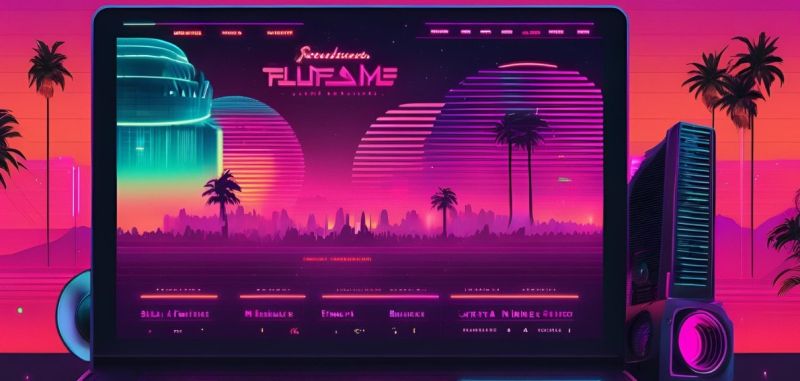
Your website should reflect the energy, vibe, and unique character of your festival. From the logo to the overall color scheme, every visual element should align with your festival’s brand identity. Effective event management is crucial for creating and customizing festival websites, with built-in features for selling tickets, collecting registrations, and promoting merchandise, simplifying the overall management of the event. Here are some tips to make your website stand out:
- Brand Consistency: Use your logo, color palette, and fonts consistently throughout the website. These should align with your festival’s branding, whether it’s edgy, classic, or modern.
- Bold, Engaging Imagery: Feature high-quality photos and videos from past events, teaser videos for upcoming festivals, and artist visuals. Make sure the visuals are vibrant and evoke the atmosphere of your festival.
- Responsive Design: Ensure your website looks great on all devices—desktops, tablets, and smartphones. Mobile-friendliness is essential, as many users will be accessing the site on the go.
3. Simplified Navigation and Structure
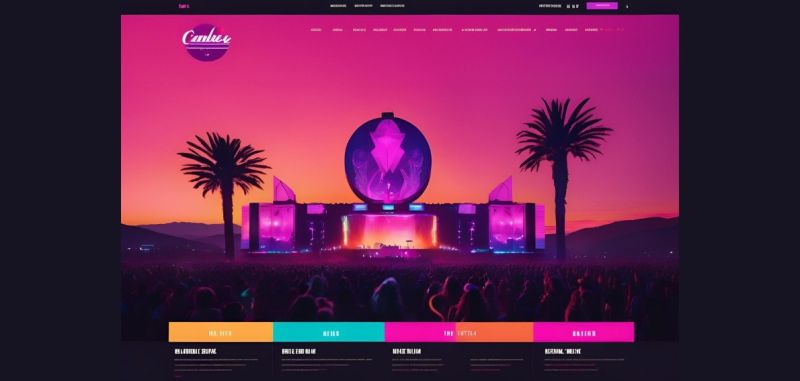
Navigating a website should be intuitive. Festival-goers are often looking for specific information, and they shouldn’t have to dig for it. Consider implementing a clean, organized layout to make it easy for users to find what they need. Key pages and sections should include:
- Home Page: The homepage should showcase the festival’s name, dates, and a prominent call-to-action (CTA) like “Buy Tickets Now.” Include a brief, compelling description of the festival and what makes it unique.
- Lineup: Showcase a list or interactive grid of performing artists, including headliners and smaller acts. Link to their profiles or websites to allow visitors to explore the music.
- Tickets: The ticket purchasing section should be front and center, with clear pricing, ticket options (single-day, multi-day, VIP), and CTAs. Integrate an easy-to-use ticketing system, and offer discounts or early-bird pricing to entice visitors to buy tickets sooner.
- Schedule/Timetable: A detailed festival schedule or timetable helps attendees plan their visit. Include showtimes, stages, and any special events (e.g., workshops, meet-and-greets). Ensure it’s easily updatable in case there are any changes.
- FAQs: Address common questions regarding parking, accommodation, COVID-19 guidelines (if applicable), food and drink policies, etc. The more you can preemptively answer questions, the better.
- Contact Information: Provide clear, easy-to-find contact details. Consider offering multiple communication options (email, phone, social media), along with a contact form for inquiries.
Under ‘Responsive Design,’ it’s crucial to emphasize the importance of mobile optimization for festival websites, as a large percentage of users will access these sites via mobile devices.
4. Essential Pages for Music Festivals
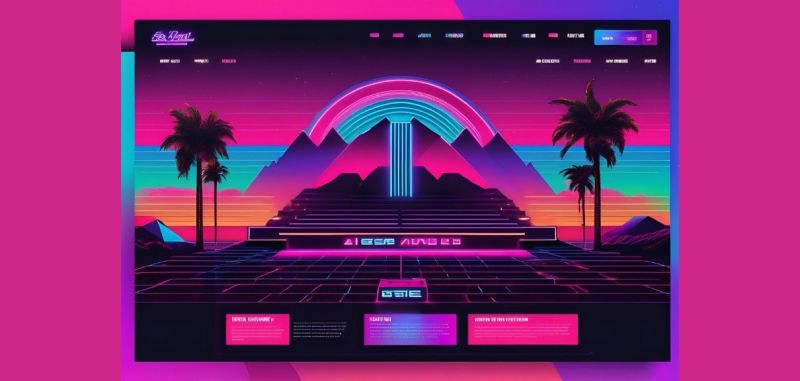
A well-structured music festival website should include several essential pages that provide festival goers with all the information they need. Here are the key pages to consider:
- Lineup Page: This is where you showcase your festival’s lineup. Include artist profiles, photos, and videos to give visitors a taste of what to expect. Highlight headliners and provide links to the artists’ social media and music platforms.
- Schedule Page: A detailed schedule page is vital for helping attendees plan their visit. Include performance dates, times, and stages, and make sure the schedule is easily updatable in case of changes.
- Ticket Page: The ticket page should offer clear options for ticket sales and registration. Include pricing, packages, and any promotions or discounts. Make the purchasing process straightforward and secure.
- About Page: Share the story of your festival on the About page. Include its history, mission, and values to create a connection with your audience. This page helps build trust and adds a personal touch to your festival’s branding.
- Contact Page: Provide multiple ways for visitors to get in touch. Include email addresses, phone numbers, and links to your social media platforms. A contact form can also be useful for specific inquiries.
These pages are essential for providing a comprehensive and engaging online experience for your festival goers, ensuring they have all the information they need at their fingertips.
5. Seamless E-Commerce Integration
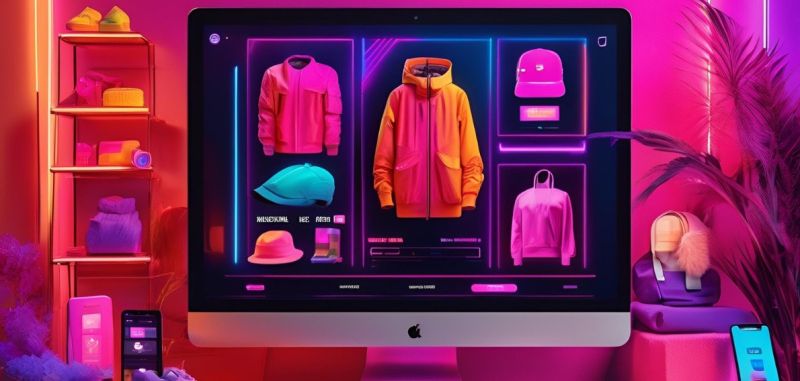
Ticket sales are crucial for your festival’s success, so make sure the purchasing process is simple, secure, and frictionless. Some key e-commerce tips include:
- Streamlined Checkout Process: Avoid unnecessary steps in the ticket-buying process. Allow customers to select their ticket type (VIP, General Admission, etc.), enter their details, and complete their purchase with minimal hassle.
- Payment Gateway Options: Offer a range of secure payment methods (credit/debit cards, PayPal, mobile payment systems, etc.) to accommodate all users. Make sure your payment processing is PCI-compliant.
- Promo Codes and Discounts: If applicable, offer promo codes, early bird tickets, or group discounts. This can help incentivize ticket purchases.
- Ticket Confirmation and Downloads: After purchasing, users should receive immediate confirmation with their ticket(s) for download or delivery (e.g., mobile tickets or physical tickets).
6. Social Media Integration

Social media is an essential marketing tool for music festivals. Make your website an extension of your festival’s social media presence by integrating various platforms. This includes:
- Social Media Buttons: Place social media icons (Facebook, Instagram, Twitter, TikTok) in the header or footer of your site so visitors can easily follow your festival for updates.
- Live Feeds or Hashtag Wall: Incorporate live feeds from social media (like Instagram or Twitter) that showcase posts and photos from festival-goers. You can also create a custom hashtag for the festival and display posts from users who tagged the festival in their content.
- Event Countdown: Build anticipation by adding a countdown clock that displays the number of days until the festival begins.
7. Ticket Page for Your Festival
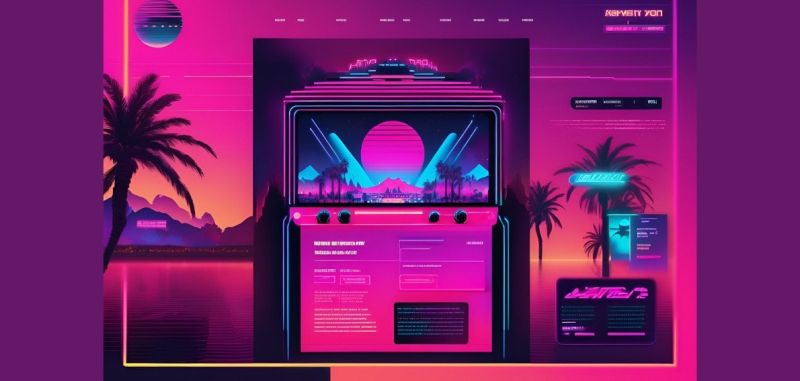
A dedicated ticket page is crucial for any music festival website. It should provide clear information on ticket types, pricing, and availability. Additionally, having a dedicated platform to sell tickets directly from the event website is essential.
Pro Tip: Ticket Fairy offers organizers the cutting-edge tools needed to build and maintain ticketing systems on and off their websites.
This streamlines the process, preventing the need to transfer potential buyers to other platforms. Features like calendar integration and specialized landing pages can further optimize ticket sales and enhance the overall attendee experience.
Also Read: Technology Against Ticket Scalping: 2025 Trends and Tips
8. Interactive Features for Engagement
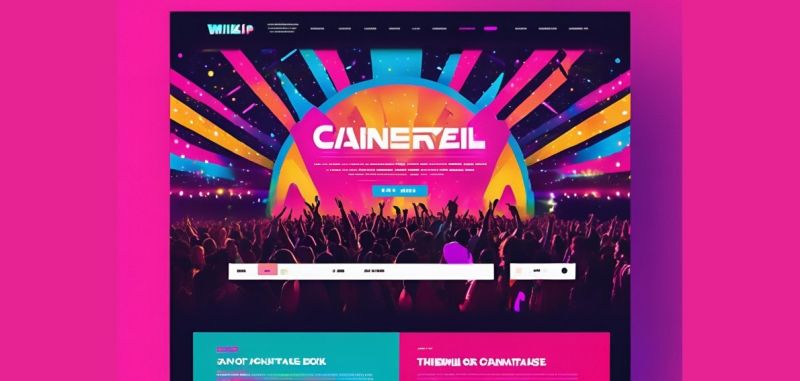
Engagement is key when it comes to keeping potential attendees interested. Some interactive features can help bring your website to life:
- Artist Profiles and Videos: Provide detailed artist pages with bio information, music samples, and links to their social media and websites. This helps attendees discover and connect with the artists before the event.
- Interactive Festival Map: An interactive map of the festival grounds, with key locations (stage names, food trucks, merch stands, bathrooms, etc.), will help attendees navigate the festival easily.
- Interactive Playlist: Curate a festival playlist on music platforms like Spotify or Apple Music that features the artists performing at your event. Add the playlist link to your website, giving attendees a chance to familiarize themselves with the lineup. Creating a festival website to enhance the promotion of a festival online is crucial. It should include features that allow efficient management of ticket sales, registrations, and attendee experiences.
- Live Chat Feature: Allow users to chat with the event organizers or customer service team in real-time. This is useful for answering urgent questions like ticketing or event details.
9. SEO and Content Strategy
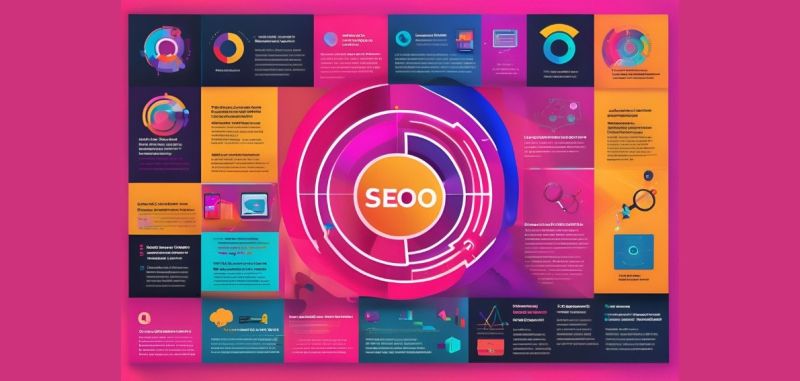
Building a great website is only half the battle—you also need to ensure that people can find it. A well-thought-out SEO strategy is essential. Some steps to improve your website’s SEO include:
- Keyword Optimization: Use relevant keywords throughout your website, such as “music festival tickets,” “summer music festivals,” and “festival lineups.” Ensure these keywords are placed naturally in page titles, headers, and content. Additionally, consider using a versatile and user-friendly website builder specifically designed for events, such as music festivals, which offers intuitive features, extensive support options, and built-in tools for SEO and event marketing.
- Meta Tags and Descriptions: Create unique meta titles and descriptions for every page to boost your site’s visibility on search engines. Include important keywords here as well.
- Blog or News Section: Maintain a blog or news section where you can post updates, artist announcements, behind-the-scenes content, or festival tips. Fresh, engaging content will help you rank higher on search engines and keep fans coming back.
Also Read: SEO Tips for Event Organizers: The Ultimate Guide to Boost Your Event’s Online Visibility in 2025
10. Marketing and Promotion
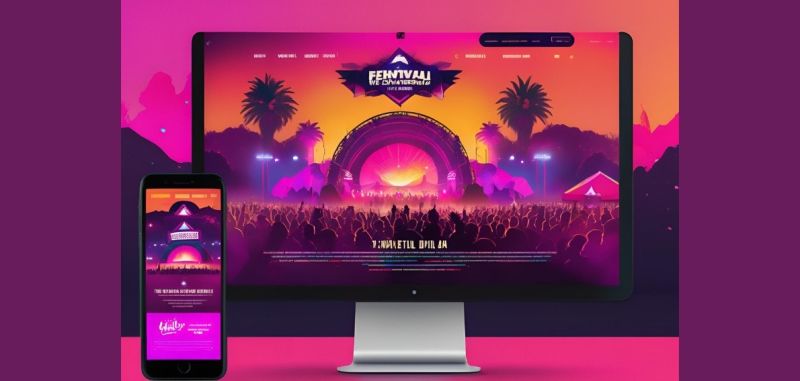
Marketing and promotion are the lifeblood of a successful music festival website. Start by developing a robust marketing strategy that leverages various channels to reach your target audience. Social media platforms like Facebook, Instagram, and Twitter are invaluable for promoting your festival and engaging with potential attendees. Create event pages on these platforms to share updates, behind-the-scenes content, and sneak peeks that build excitement.
Email marketing is another powerful tool. Send newsletters with exclusive content, early bird ticket offers, and important announcements to keep your audience informed and engaged. Partnering with influencers and artists can also amplify your reach and attract more festival goers.
Optimize your website for search engines using SEO techniques. Incorporate relevant keywords like “music festival,” “festival website,” and “ticket sales” naturally throughout your content. Create a compelling landing page that highlights your festival’s unique features and encourages visitors to buy tickets or register for updates.
By combining these marketing strategies, you can drive traffic to your music festival website, increase ticket sales, and create a buzz that keeps your audience coming back for more.
11. Performance and Speed Optimization
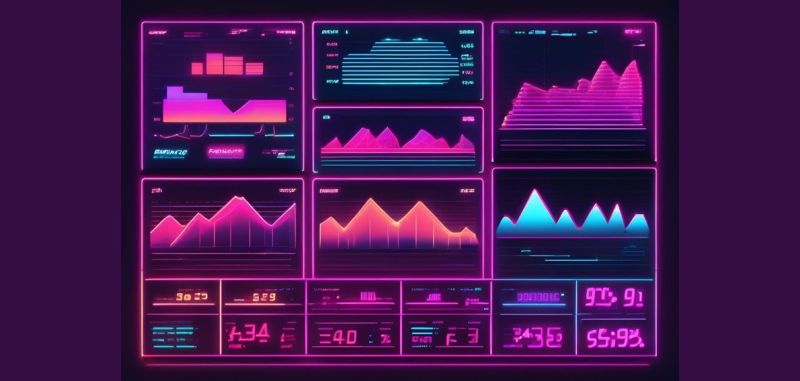
A slow website can turn potential festival-goers away. To ensure that your site loads quickly and operates smoothly, follow these steps:
- Optimize Images: Compress images without compromising quality to reduce page load time.
- Choose a Reliable Hosting Provider: Your website’s host should offer fast, reliable service with enough bandwidth to handle traffic spikes during peak times (such as when tickets go on sale).
- Minimize Plugins: Too many plugins can slow down your website. Use only those that are essential to your festival’s functionality.
12. Legal Considerations and Accessibility

To avoid legal headaches and ensure inclusivity, keep these considerations in mind:
- Privacy Policy & Terms of Service: Clearly state your privacy policy, ticketing terms, and event policies on your site. This is especially important for data protection and compliance with regulations like GDPR.
- Accessibility Features: Ensure your website is accessible to all, including those with disabilities. Use alt text for images, provide captions for videos, and ensure your website’s color scheme has high contrast for readability.
13. Launch and Evaluation
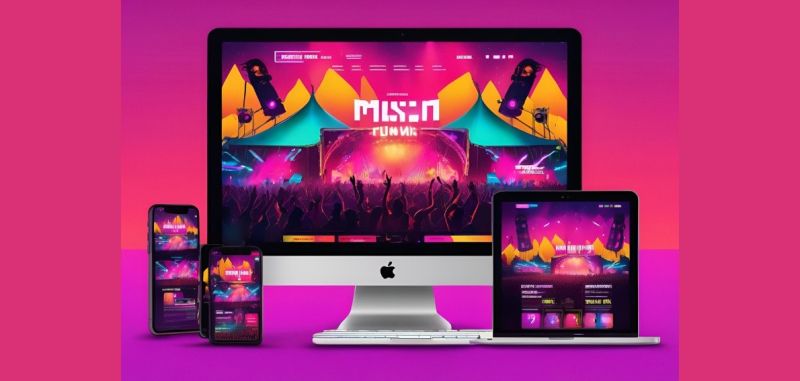
After meticulously building your music festival website, it’s time to launch and evaluate its performance. Before going live, conduct thorough testing to ensure usability, accessibility, and technical functionality. Check for broken links, ensure all forms work correctly, and verify that the site is mobile-friendly.
Once your website is live, monitor its analytics to track key metrics such as ticket sales, page views, and user engagement. Tools like Google Analytics can provide valuable insights into how visitors interact with your site. Use this data to evaluate the success of your website and identify areas for improvement.
Gather feedback from festival goers and stakeholders to refine your website further. This could be through surveys, social media comments, or direct feedback forms on your site. Continuously update and refresh your content to keep it relevant and engaging.
By following these steps, you can ensure that your music festival website not only meets but exceeds the expectations of your audience, driving ticket sales and enhancing the overall festival experience.
Conclusion
Building the perfect music festival website is more than just a design project—it’s an essential part of creating a memorable and seamless experience for your audience. By focusing on user experience, providing easy access to critical information, and incorporating engaging features, you can craft a website that amplifies excitement and drives ticket sales.
Marketing a successful festival requires a strategic approach that goes beyond simple online promotion.
With these tips in mind, you can build a festival website that not only meets the expectations of your attendees but also enhances your festival’s branding and long-term success.
Frequently Asked Questions
What are the essential pages needed for a music festival website?
A music festival website requires several key pages to provide comprehensive information to attendees. The lineup page should showcase artists with profiles, photos, and videos, linking to their social media platforms. A detailed schedule page must display performance times and stages, while the ticket page should offer clear purchasing options and pricing details. The about page shares the festival’s story and mission, building trust with attendees. A contact page with multiple communication channels is crucial. Additional pages should include FAQs, venue information, and policies. Each page should maintain consistent branding and be easily navigable.
How can you optimize the ticket-buying process on a festival website?
A successful ticket-buying process requires seamless e-commerce integration with multiple components. The checkout process should be streamlined, eliminating unnecessary steps while collecting essential information. Various secure payment options should be offered, including credit cards, PayPal, and mobile payment systems, all ensuring PCI compliance. The system should support promo codes and special discounts to incentivize early purchases. Immediate confirmation and ticket delivery options are crucial. The ticketing platform should be robust enough to handle high-volume traffic spikes, especially during popular sale periods.
What role does social media integration play in a festival website?
Social media integration is vital for marketing and engagement on festival websites. This includes prominently placed social media buttons for easy platform access and following. Live social media feeds or hashtag walls can showcase user-generated content and create community engagement. Event countdowns build anticipation and excitement. The website should serve as an extension of the festival’s social media presence, maintaining consistent branding and messaging across all platforms. Regular updates through social channels keep attendees informed and engaged, while social sharing buttons encourage content distribution.
Q4: What interactive features should be included to enhance user engagement? A: Interactive features are essential for keeping potential attendees engaged with the festival website. Key elements include detailed artist profiles with bio information, music samples, and social media links. An interactive festival map helps attendees navigate the grounds, showing stage locations, amenities, and facilities. Curated playlists on platforms like Spotify allow visitors to preview performing artists. Live chat features provide real-time support for urgent questions. These interactive elements create an immersive experience that helps attendees connect with the festival before the event.
How important is website performance and speed optimization?
Website performance and speed optimization are crucial for retaining visitors and ensuring a positive user experience. This involves proper image compression to maintain quality while reducing load times, selecting a reliable hosting provider capable of handling traffic spikes, and minimizing the use of unnecessary plugins that could slow down the site. The hosting solution should offer sufficient bandwidth to manage peak periods, particularly during ticket sales. Regular performance monitoring and optimization ensure the website remains responsive and efficient across all devices.
What marketing strategies are essential for promoting a festival website?
Marketing strategies for festival websites should be multi-faceted and comprehensive. This includes developing a robust social media presence across platforms like Facebook, Instagram, and Twitter to share updates and engage with potential attendees. Email marketing campaigns should deliver exclusive content and early bird offers. SEO optimization is crucial, incorporating relevant keywords naturally throughout the content. Partnerships with influencers and artists can expand reach. Additionally, creating compelling landing pages and maintaining fresh content through blogs or news sections helps drive traffic and maintain audience interest.
You May Also Like:
Onground Music Event Management Guide: Ensuring Your Event Runs Smoothly
Music Event Floor Plan Guide: Creating the Perfect Layout
RFID Technology For Event Ticketing In 2025: The Complete Guide


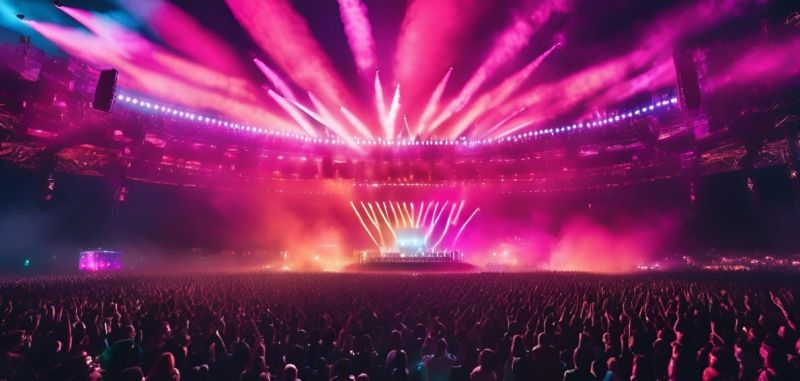
 30th June 2025
30th June 2025